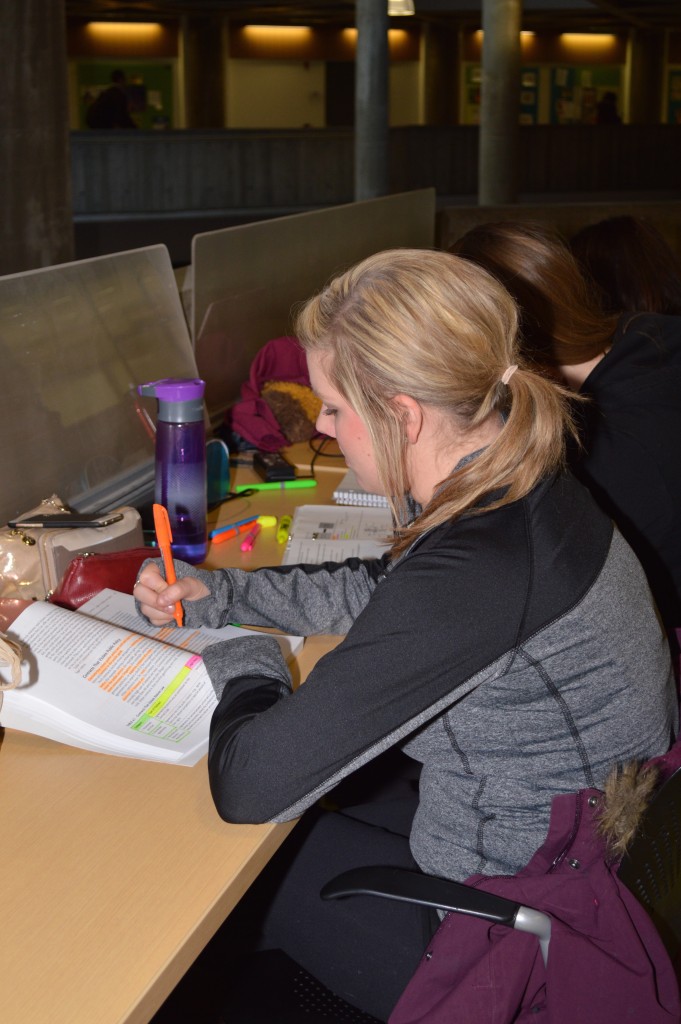
About 64 per cent of students who graduate take twice as long to complete their programs, according to Algonquin’s 2013-2014 annual report.
“Lives of students have changed,” said Cheryl Jensen, Algonquin’s president. “A lot of our students have family commitments. They are working almost full-time if not full-time and coming to school. So it’s that balance between life commitments and school that cause that increase,”
This is a sentiment that Joel Nethercote-Devlin, peer tutoring and student learning centre officer, shares.
“The student that’s completely focused on school and not have any other factors weighing in-I think that’s a big component that we’re seeing now,” said Nethercote-Devlin. “Things get more and more expensive. I think it’s a necessity that you have to subsidize yourself by having those other sources of income.”
John Gall, a peer tutor, sees a similarity for international students.
“A lot of them have many other responsibilities,” said Gall, who tutors students who are taking English as a second language. “Many are international students and they’re here from other countries than their families. Some of them have part-time jobs. They have very busy lives. They’re trying to live and learn a new language.”
Algonquin has students from many different areas of life. Jensen estimated that only about 40 per cent of students come directly out of high school.
“There’s so much pressure on students nowadays to know what they want to do the second they’re done high school,” said Nethercote-Devlin. “Maybe they haven’t had the time to sit down and contemplate the areas they want to focus on. Like anything, if you’re not interested it’s going to take you longer to finish.”
Most students, however, are coming back to school after being in the workforce for quite some time.
“It’s just getting back into the swing of academics for them,” said Nethercote-Devlin. “Getting out of the mindset of day to day functionality and a career.”
There are things every student can do to make sure they succeed.
“Doing your best to be organized and finding out what works well for you,” said Nethercote-Devlin. “Planning ahead.”
He also emphasizes student responsibility: “Everything a student does is a conscious decision,” he said. “Whether they realize it or not.”
Students have deadlines and sometimes run out of time to complete them all.
“Instead of just casting it off as something that you can’t change moving forward, it’s taking the time to look and see what you can learn from the situation,” said Nethercote-Devlin. “Just constantly evaluate what you’ve done and how you’re going to change going forward.”
Taking longer to graduate is a common occurrence. But it isn’t necessarily a problem.
“It’s not always a bad thing,” said Jensen. “If that promotes student success to have a longer finish period, then that’s great. If it’s because students are struggling and repeating courses over and over then that’s a different thing. We need to look at what student success measures we can put in place to make sure students are successful.”


